- Home
- Juliet Marillier
The Well of Shades Page 2
The Well of Shades Read online
Page 2
“That’s not true.” Eile spoke in a whisper. “If he’d loved us, he would have stayed. He wouldn’t have just… gone.”
“I don’t know how much you were told about his past. Perhaps there were reasons for what he did.”
Abruptly, the anger returned to the girl’s eyes. “If he was going to leave, he never should have come back,” she said. “It’s cruel to let people think everything’s going to be all right again, and then take that away. Then Mother went, too. Never mind. That’s of no possible interest to you. You’ve told your news, you can go now.”
Outside the rain was hammering down. Faolan observed three different places where drips were coming through the roof.
Seeing him looking, Eile laid the knife on the table, got up and moved automatically to set vessels beneath them. “I never did learn to mend thatch,” she said shakily.
“Doesn’t your uncle do that kind of thing?”
She gave a snort. “Uncle? Oh, you mean Dalach?” She spoke this name with chill distaste. “He’s got other interests. Didn’t you hear me? I said you can go.”
“If that’s what you want. I would like to speak with your aunt; tell her what I know. Perhaps in the morning.” Faolan rose to his feet. “You shouldn’t be alone in the house overnight.”
“Why not?” Her expression was bleak, resigned. “They go away all the time. I’m used to it. I prefer it. Except when strangers come knocking, and I can deal with them.”
“Yes, I’m sure you can.” Faolan thought of the pitchfork. “I don’t think Deord would be happy if he knew your circumstances here. I’m sure some arrangement can be made…” He had not thought this would be necessary. He had assumed Deord’s sister would be comfortably settled, and that he’d need only to tell his tale and move on. But this was pitiful. Something was wrong here, surely; something more than poverty. Brennan and the other villagers had seemed good enough souls. Why had this girl been allowed to dwindle to skin and bone, a frail creature who seemed held together only by her desperate anger? The circumstances of Deord’s death had meant any savings the man had were inaccessible. Faolan, however, had wealth of his own, accumulated through years of working at kings’ courts. There had been little to spend his silver on. He had neither wife nor children; his parents and sisters he had never expected to see again.
“What?” Eile was staring at him. “What is it?”
“Nothing. Eile, I’m certain Deord would want some provision made for your welfare. I can discuss it with your aunt—”
“Huh! Discuss all you like, it’ll never change a thing for us.”
It was like holding a conversation with a stone wall. “A small amount of silver could pay a thatcher, or even someone to rebuild the whole hut,” Faolan said, calculating whether he had carried sufficient funds with him. “It could provide warm clothing and fuel. It could ensure you are adequately fed.”
“We do all right. Not starving, am I? I know how to provide. We don’t need anyone.” The look in her eyes was the bleakest he had ever seen. Her hand went down to fondle the dog’s ears. For all the aggressive thrust of the chin, the defiant words, he wondered if she was waiting for him to go so she could weep alone.
“I’m sorry I brought such ill tidings,” he said simply. “I can help you, if you’ll let me. Deord and I both spent time as prisoners in Breakstone Hollow. Men who escape that place of captivity are bound for life to help one another. There aren’t many of us. Deord took that bond to an extreme. In view of that I consider myself bound to aid his family.”
“We’re past aiding,” Eile said flatly. “Silver won’t mend us. You’d best leave me to deal with this myself. You’d be wasting your money. That’s the truth.”
“How old are you, Eile?”
“How old are you?” she snapped back.
“Old. I’ve lost count.”
“I bet you haven’t. Let me guess. Five and thirty?”
Gods, his sojourn in the lands of the Caitt must have taken a heavy toll. “Not quite so old as that. I’m not yet thirty. You?”
“What are you asking? Am I still a child? The answer’s no. I’ve been old since I was twelve. That’s four years now. Don’t take that as an invitation. Not unless you want a knife in your belly.”
Faolan was seldom shocked, but her speech startled him, and he was lost for a response.
“If you’d asked them, down at Brennan’s, that’s what they would have said. The girl’s up there on her own, and she’s no better than she should be, filthy little slut. The word’s been put about so often they all believe it now, not that they come up here and try anything; when he’s home they give us a wide berth, and when he isn’t, I know how to see folk off.”
“Believe me,” Faolan said wearily, “there is no need to fear such attentions from me. That’s the last thing on my mind. I’ve two more missions to undertake after this and they crowd all other concerns from my thoughts. Besides…” He pictured Ana by a mountain lake, wading in the shallows as the sunlight touched her hair to shining gold. Ana looking up, dazzled, not at Faolan but at the tall, bright-eyed figure of Drustan.
“Besides what?” asked Eile, crouching to put the last log on the fire.
“It could be said I’ve been unlucky in love.” He did not want to tell that story.
“Love?” Her brows went up. “I don’t think that’s what Brennan and the others had in mind.”
He smiled. “I’ve put aside the other thing, too. It makes life a great deal less complicated.”
“Yes, well, you’re a man.” Her voice was muffled as she reached to poke the struggling fire. “When things get difficult you can put a bundle on your back and just go. That’s what he did. My father. A woman can’t do that. Not even with silver. Someone’d take it off her before she got as far as the next settlement. Someone’d go after her and make her come back…” Her voice trailed away. Faolan saw her take a deep, unsteady breath and square her shoulders. “I really want you to go now,” she said. “I know it’s wet, but I want to be by myself. Oh, drat!” The iron poker had toppled with a clang from where she had leaned it against the wall. An instant later, a small voice came from another chamber behind.
“Eile?”
“Curse it, now I’ve woken her up!” Eile’s voice was a fierce whisper. “Go, will you?”
“Are you sure? Who is that?”
“Go. How hard is that to understand?” And, as a small figure appeared from the inner chamber, rubbing its eyes, “Now, Faolan. Before she has a chance to get scared. Hush, Saraid, it’s all right. Did you have a dream?”
He went. This time, the dog did not follow. One image stayed in his head all through the decidedly uncomfortable walk back to the settlement: the child, whose age he could not guess, not being familiar with children, clad in a much-mended nightrobe, long brown hair ruffled from sleep but healthy and clean, eyes big and dark from her sudden waking. Little, certainly, and skinny like the other one, but surely well loved; he’d heard the change in Eile’s voice, as if she became another girl entirely in this small one’s presence. How old was Bridei’s son, Derelei? Somewhere between one and two. This child was bigger, perhaps a year or so older. For her aunt and uncle to leave Eile alone in that isolated, near-derelict hut was bad enough. To leave their own small child there as well was quite unacceptable. He hadn’t seen a scrap of food in the place.
Faolan sighed, pulling his wet cloak more tightly around his shoulders. He was making too much of this. It was poverty. It existed, and folk did what they could to survive. His own upbringing had been one of privilege by comparison, food on the table, a loving family, a household where smiles were common currency and the talk flowed freely. Until that day when he destroyed the very fabric of it. There had been poor people at Fiddler’s Crossing; there were poor people in the settlement near Bridei’s fortress at White Hill. But folk helped each other. Food was shared; a man chopped a neighbor’s wood in exchange for a share of nuts harvested or shellfish gathered. His mother had taken r
emedies to the sick. Faolan himself had played for village festivals, long ago, before his hands turned themselves to the occupation of killing. His music had been free; rich and poor alike had shared it.
So, it was simple poverty. But Eile was Deord’s daughter. Faolan was bound to help her. She’d scoffed at his silver, and he did not understand that, for it was plain she needed money. It was all he had to offer, anyway. He’d go back in the morning and give a sum to the aunt, who’d likely be less hostile. He’d request that part of it be spent on the girl’s welfare: perhaps she could be taught some skill whereby she might achieve a position beyond those crumbling walls, sewing maybe. Faolan grimaced, remembering the expert grip of her small hands on the pitchfork. She’d learned that somewhere. Maybe, in his brief sojourn home, that peerless warrior Deord had begun to teach his daughter how to protect herself.
Well, tomorrow was a new day. He’d get this thing done and be on his way. Faolan had embarked from the shore of Dalriada with three missions to fulfill. In the epic poetry of his homeland, much of which he’d memorized during his bardic training long ago, things had a tendency to come in threes: three blessings, three curses, three wise sayings. The first mission, for the king of Fortriu, was to locate a certain influential cleric known as Colmcille, find out what he was up to, and carry a report back to Bridei. The second he had just attempted: to break the news of Deord’s death to his kinsfolk. The third…
The third mission would carry him home; home to Fiddler’s Crossing to face the unthinkable. It was years now since he had walked away from his birthplace with his harp under his arm and a bundle on his back, never to return. He had left with his brother’s blood on his hands, the beloved brother he had killed in order to save the lives of his parents, his grandparents, and his three sisters. Three… Dáire, a widow at twenty, aged beyond her years; Líobhan, fourteen years old and full of defiant pride; Áine, the youngest, Áine whom his act of murder had not saved after all. He could still see her eyes, dark and terrified, as Echen Uí Néill’s henchmen dragged her away. His sisters would be older now, of course, Líobhan a grown woman. He had never been able to imagine them beyond that night. Now every part of him shrank from going home. As a young man he had acted to save his family. He had not known until it was too late that, although they had lived, he had destroyed them anyway.
It would have been better to come in summer, but Bridei was astute. He had known Faolan could not secure safe passage back to Fortriu now before next spring, and still he had let him go. That meant a whole winter to be spent in Erin. A winter for three missions; that had seemed ample time. See Deord’s family in Cloud Hill; investigate Colmcille in the north; confront his own past. The first had proven awkward thus far, but a few incentives should smooth the way for Eile. The second would require skills of a kind Faolan possessed in abundance, having worked as a spy and translator for two kings of Fortriu and done it expertly. The third was another matter. A lifetime would not be sufficient for him to summon the courage for it: to find out what had happened to his family since he walked away. To look in their eyes as they saw him and recognized him. He would perform that mission last. If it should chance that he ran out of time before spring opened the sea path to Fortriu once more, so be it. And if he had promised Ana, what of it? She was marrying another man, the altogether too perfect Drustan. Her way and Faolan’s had parted forever. That was just as well, for she had peeled back the protective layers he had set around his heart and when it was exposed, raw and tender, she had broken it. That was entirely his own fault; Ana was a woman of honor and goodness, and all she had wanted to do was help him. When he got back to Fortriu, she would likely be gone. Who would know whether he had confronted his demons or failed to find the courage?
Up until now he’d been cautious, sleeping in barns and hedges and avoiding attention. The nearer he came to his home settlement, the more likely it was folk would know, if not his identity, at least his ties of kinship. He’d never asked to be born an Uí Néill. It was more curse than blessing. In Fortriu he had worked hard at being unobtrusive, the kind of man folk’s eyes passed over. Here on his home shore his features were distinctive. It was unfortunate that the mission laid on him by Deord had happened to bring him so close to Fiddler’s Crossing; more than odd that Deord, a man of Priteni blood, had kin among the Gaels here in Laigin. He’d only expected the sister; she was the only one the dying man had mentioned. Deord hadn’t even given her name, just the district and the fact that she’d wed a Gael. Nothing about a daughter or a wife. He shivered, seeing again that girl’s desperate eyes. The mission had proved to be a little more difficult than anticipated. Never mind that; he had silver on him, and he’d use it to make things more comfortable for Eile. Then he’d move on. North. Almost certainly north.
(from Brother Suibne’s Account)
I begin this account in the house of prayer in Kerrykeel, where we are housed until Brother Colm chooses to move on. When he goes, I go, for he is a man great in faith and in goodness, a man strong of mind and radiant with the love of God, and I cannot but follow him.
It seems to me that great matters are afoot, and there is a strong will in me to set them down in writing. It is a time of change; a time that will influence not simply the small men and women who play their parts in the story of Brother Colm’s journey, but generation on generation of folk who follow. Thus my account. It is for my own record; I do not intend that others should read it. As a scribe, I am better suited to the copying of manuscripts in a fair hand, for that is a safer occupation than the composition of scholarly or didactic pieces. Too often my mind finds conformity a challenge.
This is a difficult time for Brother Colm. He is a son of the Uí Néill, the warlike family that wields such influence in the north of our land. Colm was never warrior or secular leader, but the Uí Néill blood runs true in him and he cannot escape it. No matter that he put aside worldly ambition long ago to serve the Holy Cross in true humility. I see his breeding in his proud stance, his keen eye, and his commanding voice. I see it also in his impatience with fools, for all his efforts to moderate that.
There is a tale associated with this good priest, a dark tale that explains his urgent quest to quit our home shore. Some say all that drives him is the fire in his belly to spread the faith in the lands of the Priteni. The tale suggests otherwise.
There was a great battle in the north of our homeland. Cúl Drebene, the place was called. North fought south; that is to say, northern Uí Néill fought southern, for are not all the most warlike chieftains and petty kings in that part of Erin descended from the same stock? The High King himself is one of them. Their common blood does not hold them back from warring among themselves, and Cúl Drebene was just one blood-soaked example of their territorial struggles.
It was fought on a plain in early autumn. At the time I was far away, over the sea in the kingdom of Circinn. I had not yet encountered this man of God who would so profoundly influence the course of my life. A missionary monk, I was, not an exile but a standard-bearer. The folk of that land were but newly come to knowledge of God’s word, and my task was to strengthen that knowledge; to nurture the small flame of belief in their hearts. I met two kings in the lands of the Priteni, and one was to the other as a great eagle is to the least of finches, but that is a different tale. I met a king with faith in his gaze and strength in his heart, and that king was no Christian. Bridei of Fortriu presented a puzzle; an enigma. It exercises me still.
To Colm, then, and the field of Cúl Drebene on a drizzling, clammy autumn morning. The armies were ranged, ready to march forward into combat. No less a man than the High King led the forces of the south. The northern army was led by Colm’s close kinsmen. No sooner had the leaders called their warriors to advance than a thick mist descended on the field, so that no man could see beyond the end of his own arm.
Horses whinnied in confusion; men cursed; the chieftains muttered accusations. It was the southerners who had done this, their druids being known f
or a capacity to call up freakish weather in times of difficulty. No, it was the Christian northerners who had done it, through the power of prayer. Warriors clashed on the field and did not know if it was the enemy or their own comrades they smote. Their leaders called: Retreat! Fall back!, but the curtain of vapor muffled their cries. The battle descended into screaming, bloody chaos.
Fionn of Tirconnell sent a messenger to his cousin Colm, who was then lodged in a house of prayer but a stone’s throw from that field of battle. In response, the holy brethren saw the devout monk fall to his knees in prayer, remaining thus a goodly while. By the time Fionn’s messenger came back to Cúl Drebene on a panting, foam-flecked horse, the mist had lifted, its blinding blanket shifting in the way best calculated to give the northerners the advantage. They moved, closing in on the flanks and squeezing the southern forces tight. Many men fell. The High King was among the wounded. War is no respecter of birth or blood.
Now, whether the holy man Colm caused the defeat of the High King of Erin and the rout of his forces, or whether the whole thing was no more than a fortunate coincidence, is not for a lowly cleric to express in words, let alone set down in writing. Suffice to say there were those who believed Colm responsible. In time he was called before a synod, to which he offered a most fluent and powerful defense. It was not sufficient. The bishops made it clear to him that he was no longer welcome on his home shore. It was not quite excommunication, but it was plain that, if he were to remain in Erin, Colm could neither preach the word of God nor live his life in the example of Our Lord. The taint of his kinsmen’s disputes and the stain of the blood apparently shed through his own request for divine intervention must always hang over him. The field of Cúl Drebene would always lie between him and his yearning for a life lived wholly in godliness.
It was during that time of uncertainty that I met the man and found my life transformed. I saw in him a power beyond the earthly, a faith beyond the saintly, a voice and a presence that spoke to the place deepest in every man’s spirit. I had believed myself devout. He awoke in me a joy in God’s word I had never before dreamed of. My time at the court of Circinn was over, and I expected a long and peaceful stay in my homeland, exercising my wits on scribing and scholarship and avoiding the other activities that had become part and parcel of my existence in such a place of plotters and schemers. I wished to stay with Colm; to join the small band of brethren who shared his vision for the future.

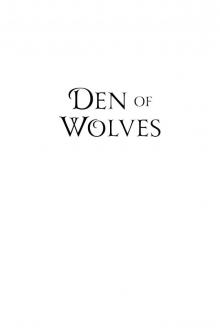 Den of Wolves
Den of Wolves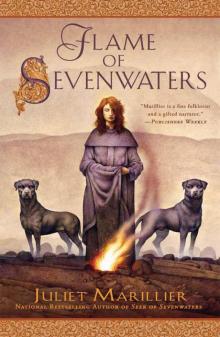 Flame of Sevenwaters
Flame of Sevenwaters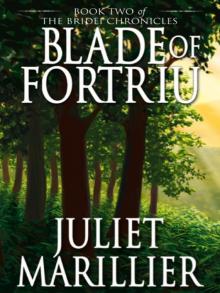 Blade of Fortriu
Blade of Fortriu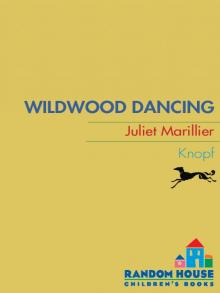 Wildwood Dancing
Wildwood Dancing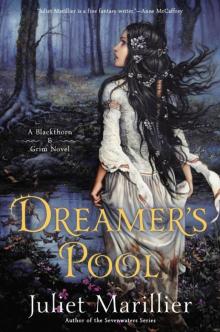 Dreamer's Pool
Dreamer's Pool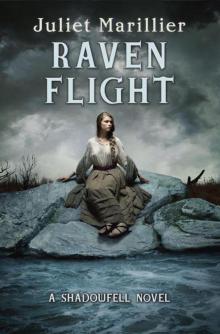 Raven Flight
Raven Flight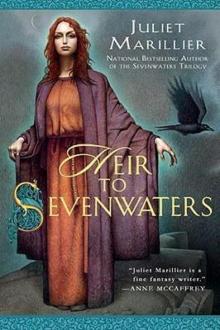 Heir to Sevenwaters
Heir to Sevenwaters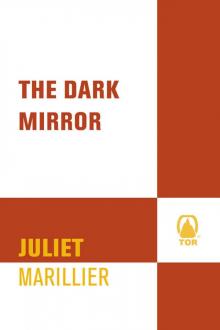 The Dark Mirror
The Dark Mirror Daughter of the Forest
Daughter of the Forest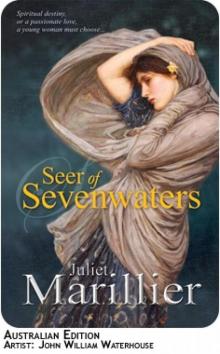 Seer of Sevenwaters
Seer of Sevenwaters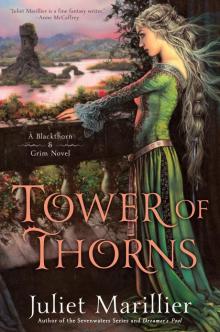 Tower of Thorns
Tower of Thorns Shadowfell
Shadowfell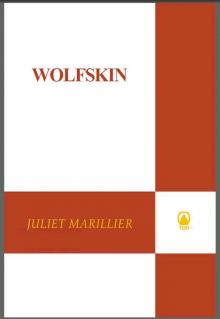 Wolfskin
Wolfskin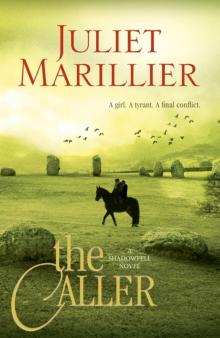 The Caller
The Caller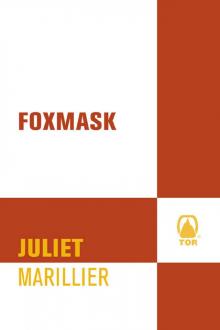 Foxmask
Foxmask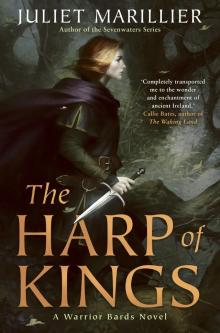 Harp of Kings
Harp of Kings The Well of Shades
The Well of Shades Heart's Blood
Heart's Blood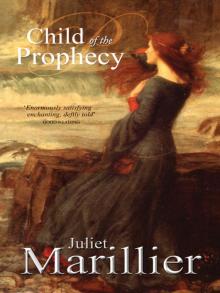 Child of the Prophecy
Child of the Prophecy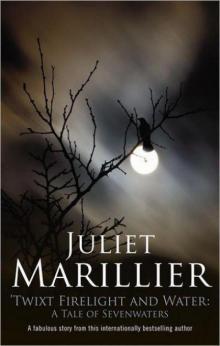 Twixt Firelight and Water
Twixt Firelight and Water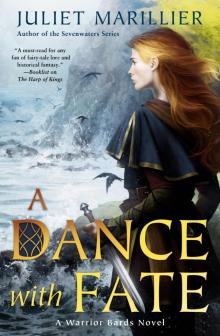 A Dance with Fate
A Dance with Fate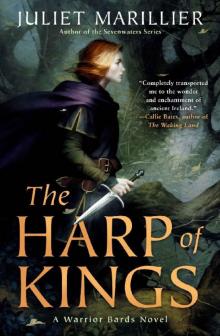 The Harp of Kings (Warrior Bards)
The Harp of Kings (Warrior Bards)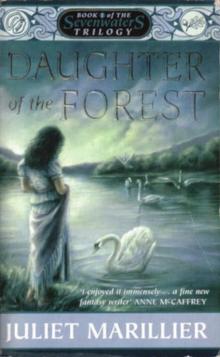 Daughter of the Forest (The Sevenwaters Trilogy)
Daughter of the Forest (The Sevenwaters Trilogy)![Sevenwaters [06] Flame of Sevenwaters Read online](http://i1.bookreadfree.com/i2/04/08/sevenwaters_06_flame_of_sevenwaters_preview.jpg) Sevenwaters [06] Flame of Sevenwaters
Sevenwaters [06] Flame of Sevenwaters![[Sevenwaters 04] Heir to Sevenwaters Read online](http://i1.bookreadfree.com/i2/04/12/sevenwaters_04_heir_to_sevenwaters_preview.jpg) [Sevenwaters 04] Heir to Sevenwaters
[Sevenwaters 04] Heir to Sevenwaters